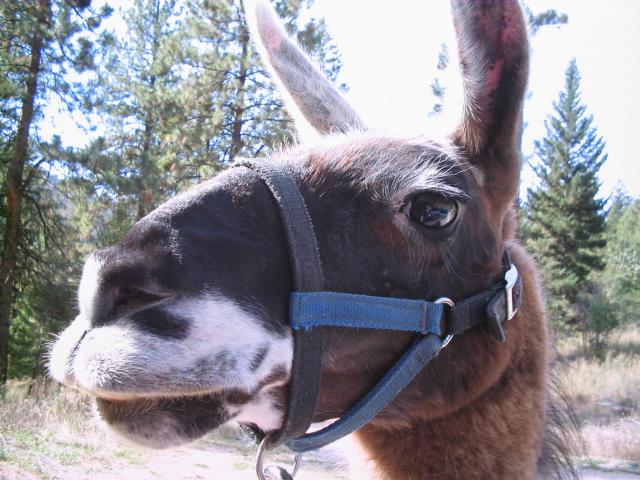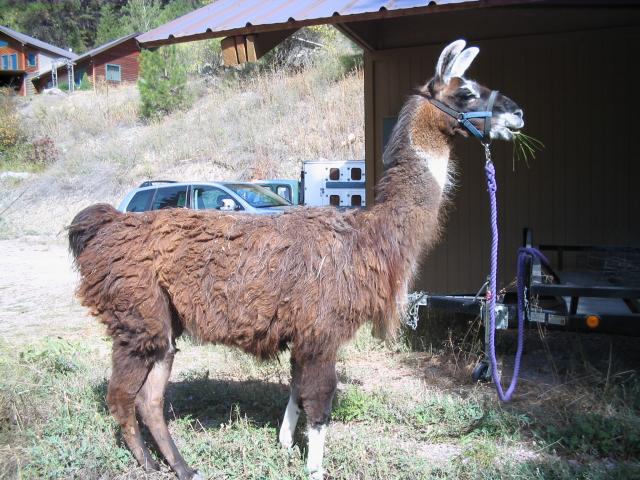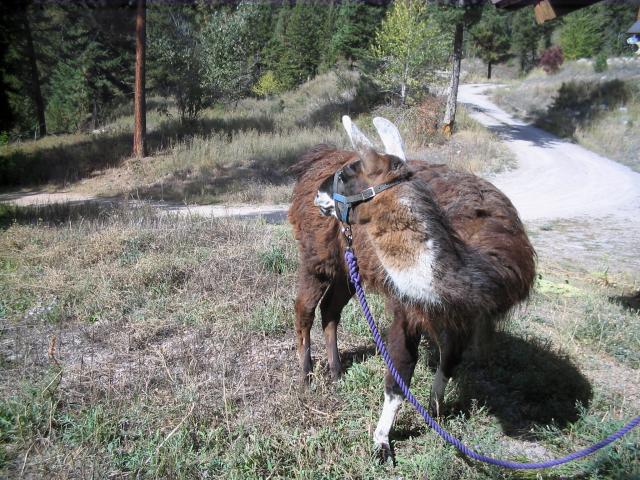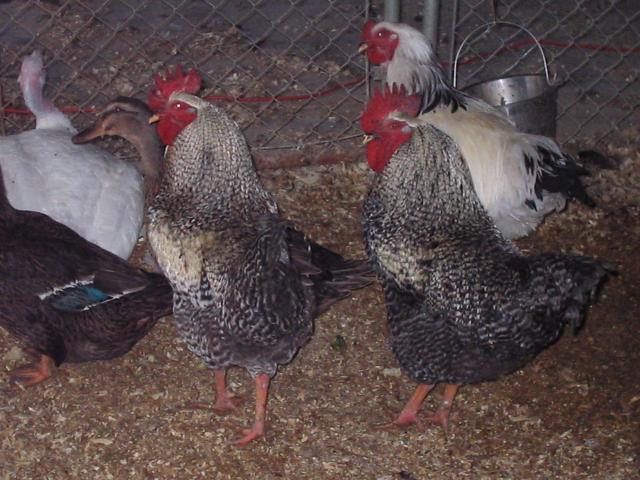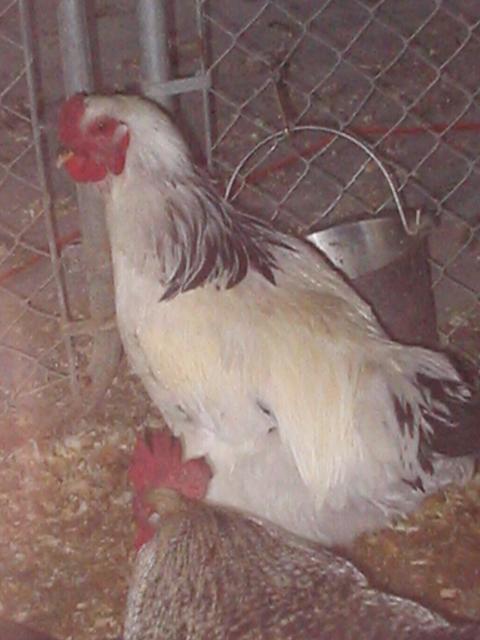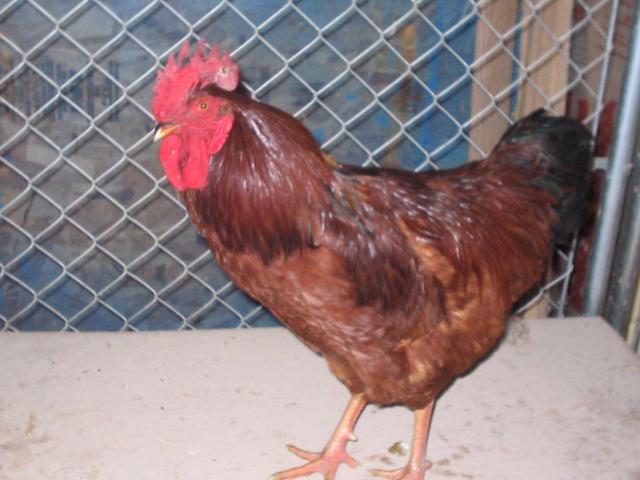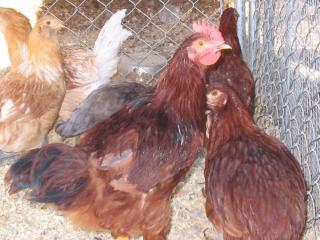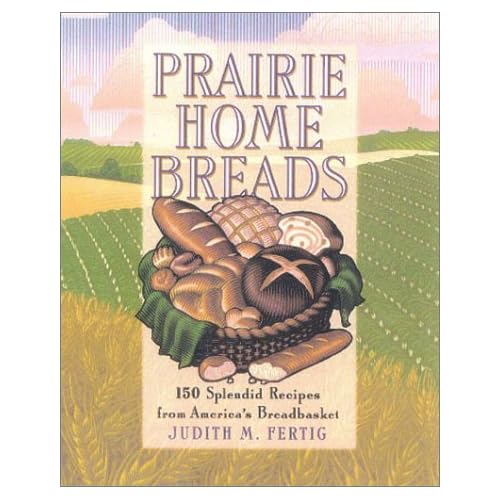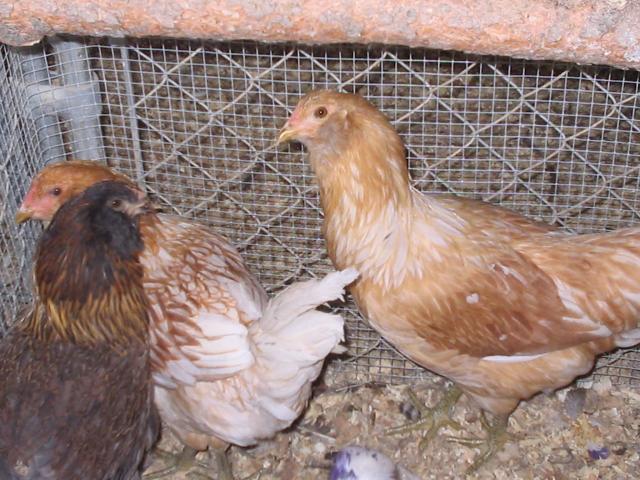Siddhartha and Montana Friendly
Unknown
1:17 PM
One thing you must learn when living in Montana is that things never get done fast. I love this place and the people, but one thing you must be aware of is if you go to a neighbor's house, prepare to spend at least an hour talking. It's just not civilized, otherwise.
It's not that people don't have things to do, it's just that everything happens on Montana time. My neighbor, Kate, who is a really nice lady, had a tonsillectomy a few days ago and wanted eggs. So, I brought them. We got to talking. We were soon talking about Sid the llama (she wants me to name him Siddhartha) and all the happening in the neighborhood. Before I knew it, her husband had come home and I had to go back and explain Sid and the entire circumstance again. It's really like people love stories and catching up with what's going on. "...so and so tells me that the doe and the fawn is all that is left of the herd..." and "so and so has a friend staying in a yurt behind his house and the mountain lion came by the other night..." You have to admit, it's pretty interest stuff here.
I found out some interesting news about Sid. His old name may have pointed to a line of llamas known as Ten Mile packing llamas. So, he might be from that pedigree, which is cool, but seeing as he's a gelding, he won't be passing that line along anytime.
As I went back to see Sid, I noticed he's hanging out looking and waiting for me. That's way cool. He's a very happy llama now.
It's not that people don't have things to do, it's just that everything happens on Montana time. My neighbor, Kate, who is a really nice lady, had a tonsillectomy a few days ago and wanted eggs. So, I brought them. We got to talking. We were soon talking about Sid the llama (she wants me to name him Siddhartha) and all the happening in the neighborhood. Before I knew it, her husband had come home and I had to go back and explain Sid and the entire circumstance again. It's really like people love stories and catching up with what's going on. "...so and so tells me that the doe and the fawn is all that is left of the herd..." and "so and so has a friend staying in a yurt behind his house and the mountain lion came by the other night..." You have to admit, it's pretty interest stuff here.
I found out some interesting news about Sid. His old name may have pointed to a line of llamas known as Ten Mile packing llamas. So, he might be from that pedigree, which is cool, but seeing as he's a gelding, he won't be passing that line along anytime.
As I went back to see Sid, I noticed he's hanging out looking and waiting for me. That's way cool. He's a very happy llama now.



